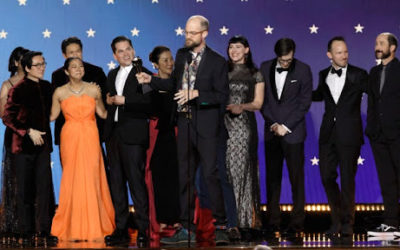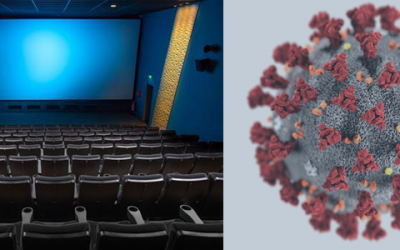Source: Variety
The upcoming Cannes Film Festival, generally revered as one of the most prestigious festivals of international film festivals, may be happening a bit later in the year in comparison to previous festivals, set to take place between July 6th and July 17th of this year (as opposed to being scheduled during May as usual), but as the saying goes, better late than never. That could not be more true when compared to last year’s festival (or lack thereof); as a result of the COVID-19 pandemic that had forced much of the world to a standstill, many major cinematic events had to be either postponed or cancelled altogether, with the latter being the case for the 2020 Cannes Film Festival. However, with the world starting to recover from the pandemic, many institutions have become more comfortable with announcing the return of their many highly anticipated events. The Cannes Film Festival is no exception, and on June 3rd, the selection of films that would be screened over the course of the twelve-day event was announced.
One major question many analysts had before Cannes made its announcement was whether or not any of the films that were previously scheduled for the 2020 festival would be included as part of the 2021 event. For the most part, the answer is a resounding “yes”, with many of the previously scheduled films being included with the sixty-two other cinematic endeavors that will screen in and out of competition during the upcoming festival. Of these, twenty-four are expected to compete for the festival’s many prizes, the most honorable being the festival’s award for Best Picture, the Palme d’Or.
Looking at the list of films competing against one another and the people directing and producing them, one is likely to find at least one or two familiar names. Among the most notable American filmmakers whose works will vie for the festival’s top honors are Wes Anderson of “Isle of Dogs” and “The Grand Budapest Hotel” fame for “The French Dispatch” (one of many films originally planned for a premiere at the 2020 festival), Academy Award winning actor-turned-director Sean Penn for “Flag Day”, and “The Florida Project” director Sean Baker for “Red Rocket”. As skilled and experienced all these filmmakers are, they will have to overcome some stiff competition from overseas if they seek to be named among the festival’s winners. Of these non-American productions, Leos Carax’ “Annette” from France (which is currently set to open the festival), Paul Verhoeven’s “Bendetta” from the Netherlands, Asghar Fahadi’s “A Hero” from Iran, and Apichatpong Weerasethakul’s “Memoria” from Thailand are said to be major contenders that should not go overlooked by festival judges.
Even among films that won’t directly compete for the Palme d’Or and the various other prizes handed out at Cannes, there are still expected to be a satisfactory number of titles that will entertain audiences and perhaps even demonstrate noticeable relevance to the current events still taking place throughout the world. This was implied when Thierry Frémaux, the general delegate and artistic director of the festival, first unveiled the line-up of films alongside festival president Pierre Lescure, both of whom appeared to be very enthusiastic about the upcoming film festival. “Cinema is not dead, and the return of audiences to movie theaters around the world was the first good news,” Frémaux claims during the line-up’s announcement, “and the festival will be the second good news.”
When deciding on which films to include throughout the duration of the festival, Frémaux emphasized the need to showcase a “very international” selection that best reflected the wide array of peoples and cultures throughout the globe. Doing so was far from an easy task, especially when it came to the factors that had to be taken into consideration when choosing and arranging the right films, some of which included ongoing discussions with international filmmakers and the continued presence of the COVID-19 pandemic, which still proves to be a major concern due to recent spikes in cases in certain countries as well as the emergence of new virus variants. Despite these concerns, festival organizers were still able to narrow the 2,300 films submitted for the event down to a much smaller handful, and even with there only being so much room for a limited number of films, the selection does fortunately reflect this strive for international representation. Among the biggest surprises when it comes to films that will not only screen at Cannes, but compete as well, are “Nitram” from Australia’s Justin Kurzel, “Casablanca Beats” from Nabil Ayouch of Morocco, and “Lingui,” from Chad-born director Mahamat-Saleh Haroun.
With the pandemic still posing a threat to the festival and the people who attend it, precautionary mandates have been put into place in order to keep the event as safe as possible. Wearing masks, for example, may not be a necessity for those walking on the red carpet outdoors, but it will be required for those who seek to attend any one of the major indoor screenings that will be held throughout the majority of the festival. What may not be required, however, is the limitation of maximum auditorium capacity; if things go as currently planned, then the government of France will begin full reopening and lift audience capacity guidelines for any of the nation’s cultural venues, including movie theaters.
On top of everything else, Frémaux implied that one title that was not yet announced would be a major blockbuster premiere that would serve as the festival closer. That film was revealed on June 7th as “F9”, the latest entry in the “Fast and the Furious” series, and while some may find its inclusion to be a bit questionable (especially since this film has already premiered in several markets already), others are perfectly fine with its presence. After all, in light of everything that had happened over the previous year, it makes perfect sense for an event symbolizing the return of cinema to go out with a bang (and maybe a few more explosions here and there).




